Chef Fabrizio Aielli, Sea Salt, Naples
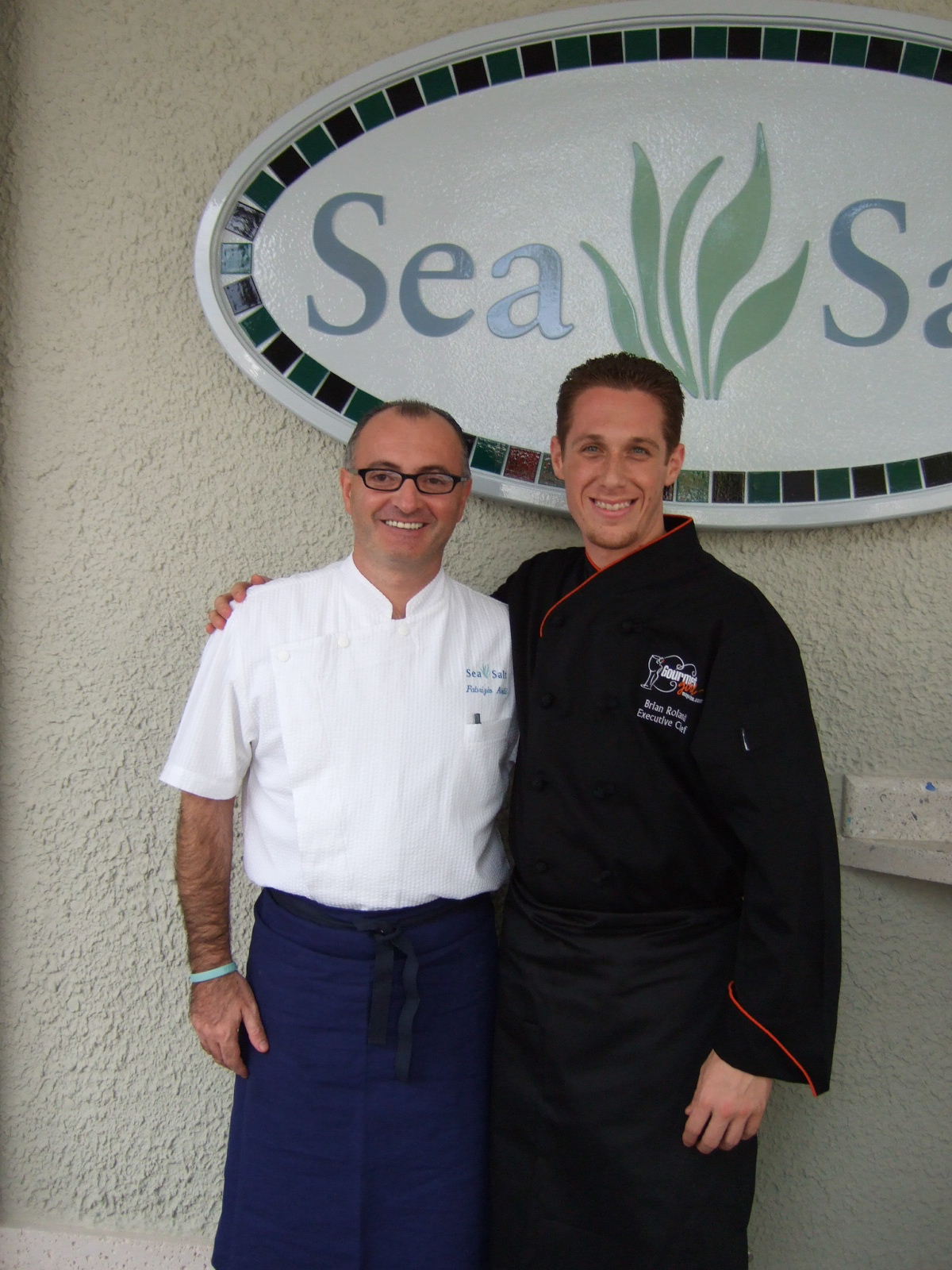 Chef Brian: You are originally from the Island of Cipriani. Share with us what it was like growing up off the coast of Venice, Italy.
Chef Brian: You are originally from the Island of Cipriani. Share with us what it was like growing up off the coast of Venice, Italy.
Chef Fabrizio: When I was a little kid I always had a passion for cooking. My father really didn’t want me to have a career in cooking. He was in the navy, so he wanted me to have a job like in the navy or doing something else. In Italy, now, cooking has become very popular for men. Before it wasn’t a man's job, cooking. That is the way my father thought. When I was little, I was going to school and playing music. I loved music and I loved cooking. I was studying music. But always, when I had time I was cooking. I started to realize
when I was 10 years old that I really loved cooking. To me it was fun and when I was with friends, I was cooking with them. When I turned 14 I started to dedicate most of my time to cooking.
Brian: What was your first restaurant job?
CF: I got my first job when I was 14 working part time in a restaurant. I worked on Cipriani Island. I stayed there until I was 18, 19 years old. After that I started to travel. I left Venice when I was around 19. I was in London, Paris, Caribbean. I came to the States for the first in time 1983.
Brian: You’ve stated that watching your mother prepare meals was your inspiration. What was it about her cooking that prompted you to pursue a career in the kitchen?
CF: My mom, she would get up in the morning. She would go to the market, one place to buy fresh bread, another place to buy fresh tomato, another place to buy eggplant. She spent 2-3 hours everyday in the morning shopping, to just prepare lunch. After she would come home, she would prepare the food and then she had the same routine in the afternoon, in order to buy the food for dinner. I just worked with her, there in kitchen, helping her cook, tasting, just learning. One thing I learned from my mother, cooking can be the most simple thing in the world.
Brian: What was your favorite childhood dish?
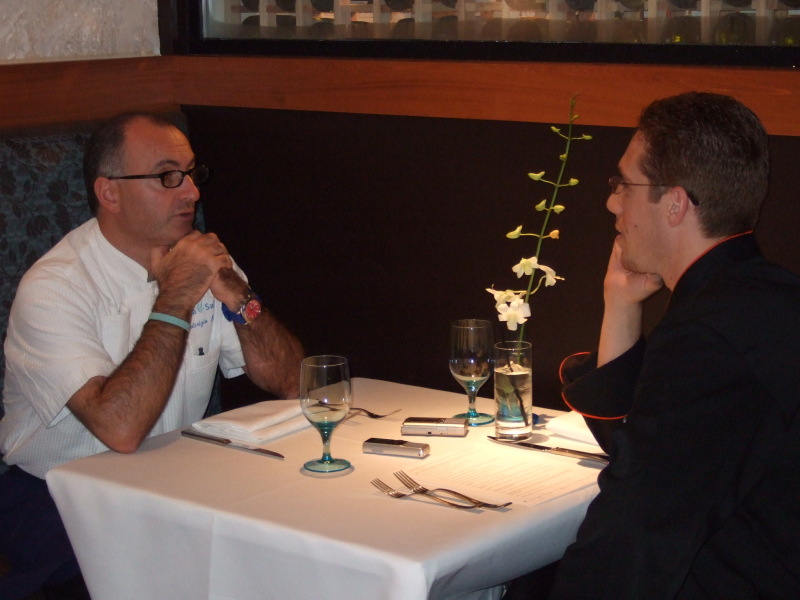 CF: If I’m going to describe one dish, I’m going to lie to myself. I could never choose. Every time I go to Italy, before we go there, I speak with my mom, "Momma, Ingrid and I want stuffed peppers or eggplant parmigiano." I love authentic, rustic Italian food. Doesn’t matter where I am, I just love the simplicity.
CF: If I’m going to describe one dish, I’m going to lie to myself. I could never choose. Every time I go to Italy, before we go there, I speak with my mom, "Momma, Ingrid and I want stuffed peppers or eggplant parmigiano." I love authentic, rustic Italian food. Doesn’t matter where I am, I just love the simplicity.
Brian: What was your first job outside of Venice?
CF: I moved to England. and worked in a French restaurant, La Coup de France. I stayed there a short time then I moved to Paris for 7 months. Then I accepted a job here in Tampa and worked for over a year. The only restaurant I worked for a full year. I used to work in a restaurant for 2-3 months and then move to the next one. After I left Tampa, I would do the opening of new restaurants, I would do the training and then move onto the next one.
Brian: Why do you refer to your recipes as ‘creations from the heart?’
CF: I like to take a really traditional dish and just twist it to make it funky, more exciting. For me a tomato is the most exciting thing to grow in your backyard. You go and pick it before sunset, so when the tomato is almost cooled off from the sun, it’s so sweet that tomato. It’s the most exciting thing. Maybe I make a chocolate rice, or a pistachio rice. Most people when I think of something like that they say, "I’m never going to try something like that." The way we do it, sometimes when we put a new dish on the menu, when guest come for dinner we give it to everybody for free. Just to try it.
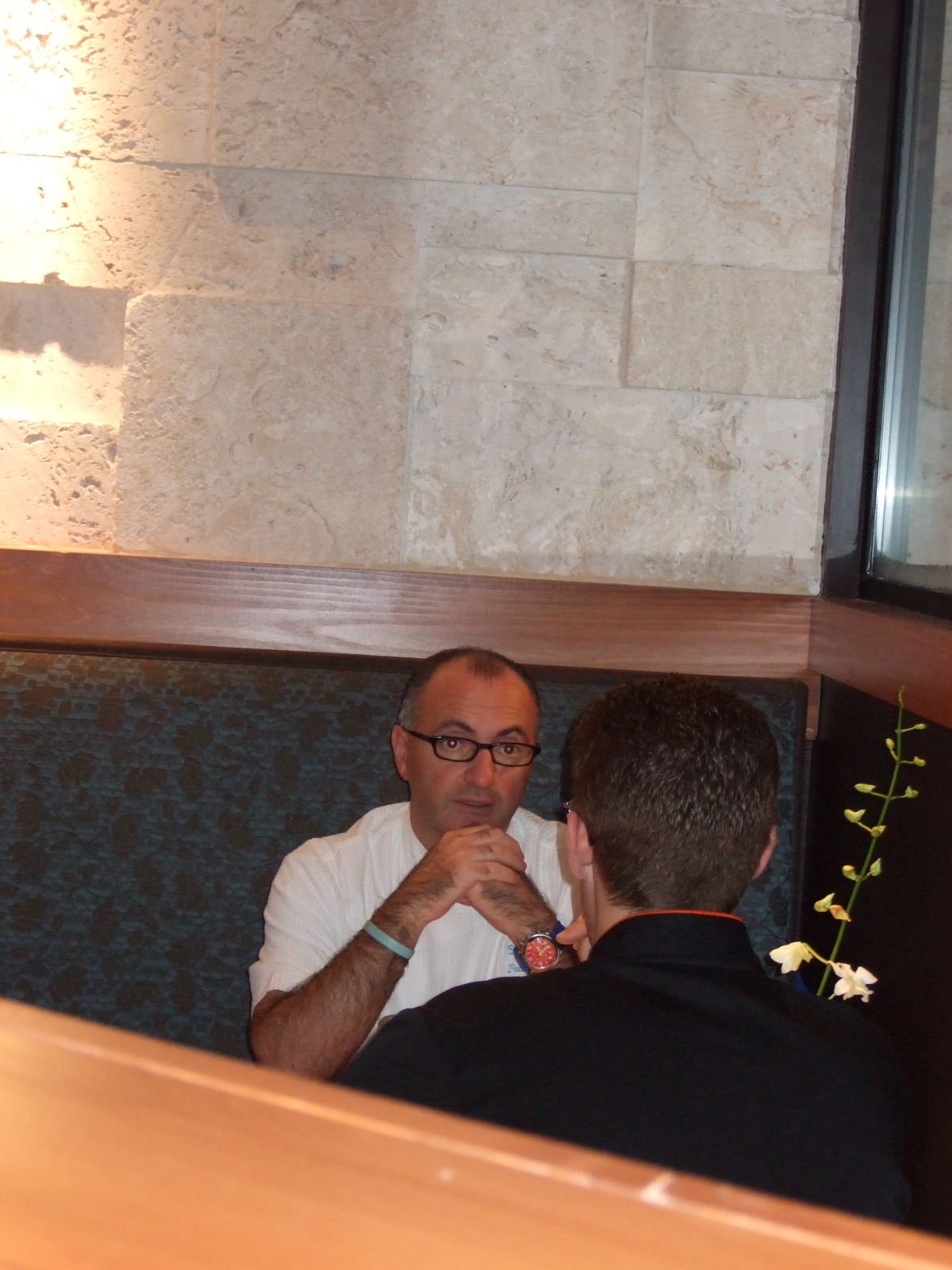 Brian: Have you had any formal training? If so, where?
Brian: Have you had any formal training? If so, where?
CF: I do not believe in the culinary school. Culinary school teaches you all the reasons you are choosing to work as a chef. It’s beautiful there, but they don’t teach you how to work under pressure.
Brian: Did you go to a school as well?
CF: I did several courses, they treated me like some great chef. I learned a lot from them, but I think the most I learned was when I worked with chefs in restaurants. I learned in a very old fashioned way.
Brian: It made you who you are today. Who would you say is your mentor?
CF: I think all of them (the chefs I worked with) are my mentor. In the same way, I still believe the best learning for me is when I go to cook or eat with family. There is no measuring, we just go and do it and it is absolutely delicious. I love Allain Ducasse. For me I put all these great chefs in the same category. There are a lot. I do not believe there is only one great chef, we all just have different tastes and different ways to express ourselves through cooking.
Brian: What was it like to have celebrities come to you and treat YOU like the celebrity?
CF: There were a lot of celebrities. They (celebrities) were the most simple and humble people that I ever met. It’s very hard to believe that, but I had people coming into my kitchen and ask, "How’d you get so and so to be a customer?" But I guess it’s natural. Doesn’t matter if he’s a celebrity or a regular customer. You try to devote a little more attention. We want to try to impress them. Then they would tell me, "I just wanted a plate of pasta." I was so excited, just coming from Italy. Very exciting.
Brian: What is your favorite seasonal ingredient?
CF: I love zucchini flower, I love black and white truffle, I love persimmons. I don’t use them when they are in season because they are everywhere. But when it is summer time, I like to use them. Make a pasta, stuff it with persimmon and serve a consomme with bitter chocolate. Beautiful. To make a dinner using just potatoes. Everything must be made with potato. Or just egg.
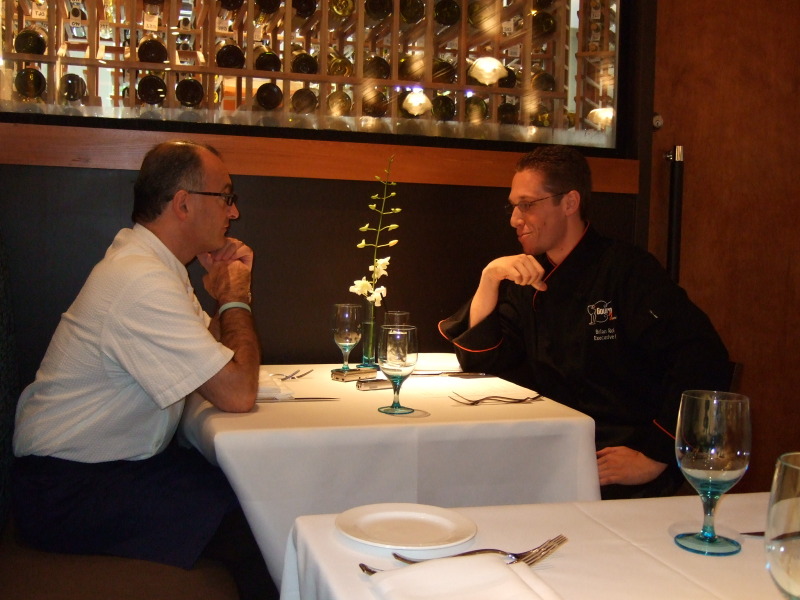 Brian: What is the most important thing to you in running your kitchen?
Brian: What is the most important thing to you in running your kitchen?
CA: Focus. To be focused and have a big smile. Each time you smile, you get a smile. I like to work very calm. Sometimes I get upset. It takes me two seconds to recover from that. If I scream, I apologize to who I screamed at. I want to see everyone smiling. I don’t want to see any sad people.
Brian: What was your greatest challenge in developing your new menu?
CF: Ingredients. To find the ingredients that we want. I started to go back to all the resources we had in Washington because we don’t have much locally. All of our seafood right now, we get from 7 different companies. Just one company is local from Naples. It’s really very sad, because I was trying to get more locally, but you cannot. Even for vegetables. We have a company in California that we use a lot. We are going to start to go up north also.
Brian: Explain what Venetian World Cuisine is.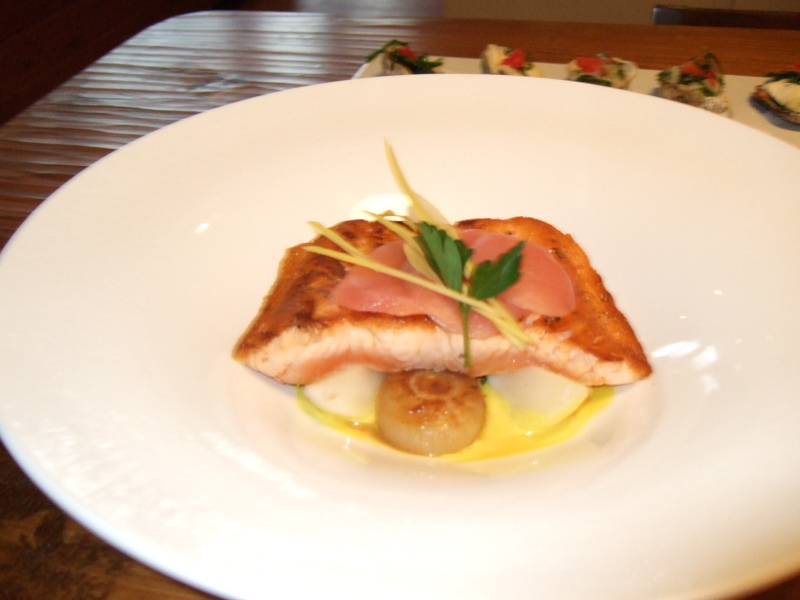 CF: Venetian World Cuisine is just a way to describe that there is not a limit when cooking. What Marco Polo really did when he came back to Venice was to show there were no limits. He brought different spices, but he also brought new types of cooking to Venice. I make very typical, traditional food, even in Italy. If you go into mama or papa restaurants, you find them (traditional foods). But you know there are many chefs all over the world, they are excited about cooking. Whatever ingredient they find, they cook. Venetian Cuisine is a very open minded form of cooking. We take a traditional Venetian dish and we do it in a modern way, but there really is no 'modern way' in Italy. The modern way is the way each chef sees it personally.
CF: Venetian World Cuisine is just a way to describe that there is not a limit when cooking. What Marco Polo really did when he came back to Venice was to show there were no limits. He brought different spices, but he also brought new types of cooking to Venice. I make very typical, traditional food, even in Italy. If you go into mama or papa restaurants, you find them (traditional foods). But you know there are many chefs all over the world, they are excited about cooking. Whatever ingredient they find, they cook. Venetian Cuisine is a very open minded form of cooking. We take a traditional Venetian dish and we do it in a modern way, but there really is no 'modern way' in Italy. The modern way is the way each chef sees it personally.
Brian: Why did you leave a successful, award winning restaurant in Washington, DC, to come to Florida?
CF: Because I love Naples. I was here seven years ago for the first time. We started to come here more and more often. I needed more of the water, the Gulf and the view. More sand. I love Washington. Every single minute of the day I say thank you to Washington for every single thing. But for me, it’s like cooking. I need some new excitement. I started to lose my passion, my excitement. I want to do something new. So I decided to come here to Naples. One thing that Sea Salt reminds me of, was the excitement I had when I opened my first restaurant. It’s good.
Brain: Favorite dish on Sea Salt Menu?
CF: Carpaccio.
Brian: What sets Sea Salt apart from all the other Italian restaurants in Southwest Florida? Naples in particular.
CF: First we are not an Italian restaurant. If you come here you are not going to find one Italian dish. I am not here in Naples, or in this country to do something different than what somebody else is doing. I am not here to compete with any restaurant. I am here to do something better for this beautiful city of Naples. I hope there will be a lot of chefs coming to Naples. It really deserves to be one of the most important cities, for its beauty and for the people that come here, for the food. One of the greatest wine people in the world is here in Naples. People come here and say, "Naples’ restaurants, they are so-so." It is absolutely not true.
Brian: As a chef who has had an open kitchen, why did you choose to have an open kitchen here at Sea Salt?
CF: I like an open kitchen. The kitchen is the heart of the restaurant. It’s like an orchestra, the director, he has a little bit of knowledge of each instrument. He knows how to play each one. For me, an open kitchen allows me to control the kitchen, control the dining room; for time, for service, for quality. To show the customers that we have nothing to hide. They can come into the kitchen to see the way we cook, the way we keep our food. I am proud of that.
Biran: Charcuterie is an Italian staple of every meal. Was it always part of the concept when you decided to open Sea Salt?
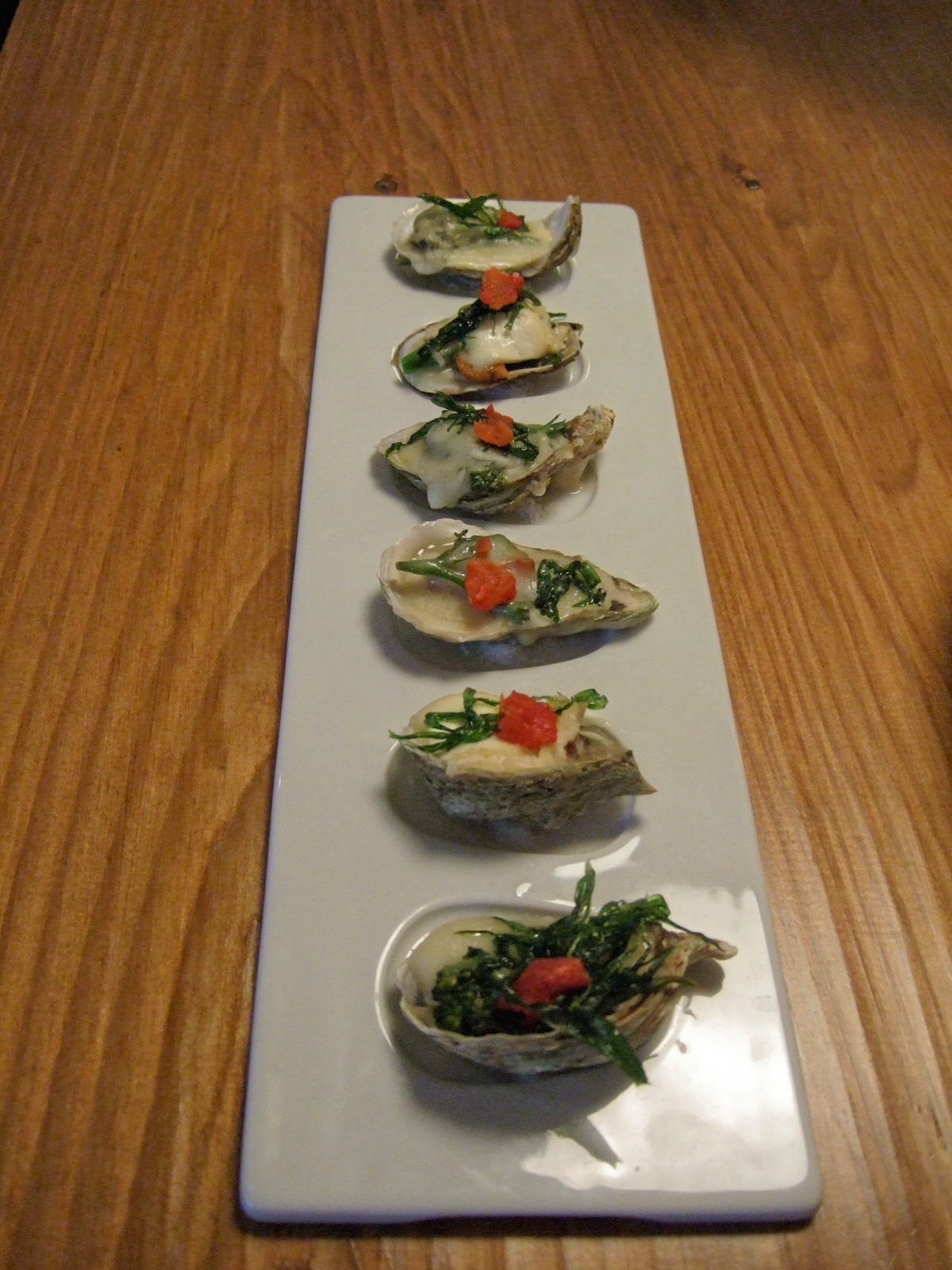 CF: Yes.
CF: Yes.
Brian: I’d like to know your overall philosophy on food and your cuisine.
CF: What I try to classify this restaurant as is "Cuisine is from the heart." It’s 1,2,3. It’s very simple. All about quality and high standards of product. For the chef's table, it’s about my imagination in a relaxed way, to please our customer. It’s my dream, whatever I make that night. (For the chef’s table.) I love the chef's table. When we first came here to Naples, what I wanted to do was a restaurant with just 30 seats. One seating, no menu, open only three days a week, kind of a big chef’s table. But it’s very
hard to do, business wise. We are not taking reservations for the chef’s table yet. When I do the chef’s table, I want to be only there. I don't want to be doing any other cooking. Right now we are focusing on the restaurant.
Brian: You and Ingrid seem to be a very successful team, you in the back of the house, she in the front. Sometimes it can be very difficult to work together, balancing personal and business. How do you manage that?
CF: It's 50/50. In the restaurant, she doesn’t step in my territory and I don’t step in her territory. My wife has excellent, superb vision, of people. I just stay in my kitchen, she’ll come and talk to me and I listen. My wife knew nothing about the restaurant business when we started out. She was an engineer, she didn’t really like that and moved into the fashion business. After two years of marriage, I never really saw my wife because of the restaurant business. My wife said we have to find a solution. I told her, "Honey, the only thing I know how to do is the restaurant business." She said, "Fine, tomorrow I will start to work with you in the restaurant." She loves it.
Brian: What do you cook when you are at home?
CF: It is very rare that I cook for just me and my wife. When I cook home now, I cook whatever. Peanut butter, mussels, etc.. (Laughter)
Brian: Is there anything you’ld like us to know about you that we haven’t asked?
CF: I really believe in simplicity and honesty.


